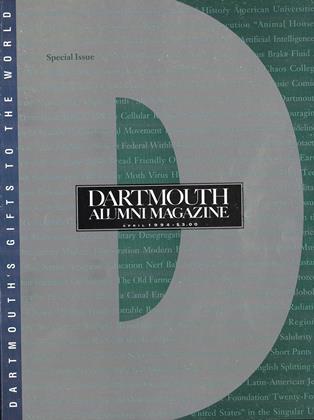As the nation attempts to rehabilitate its health-care system, Dartmouth Medical School Professor John Wennberg and his Center for the Evaluative Clinical Sciences are helping with the diagnosis. With pioneering research into how physicians decide which medical treatment to offer patients, Wennberg and his colleagues have helped make the nation aware that few medical decisions are made on purely scientific grounds; indeed, that know-how about what works in medical treatment is far more illusory than most people have acknowledged. Trying to reduce guess-work, Wennberg recently established a master of science program in evaluative clinical sciences.
Wennberg's group is also formulating some cures for the system. The researchers are creating tools including interactive Videodisks that educate patients about treatment options and enable them to participate directly in decisions about their care.
The outcomes movement is no less than a "revolution" in health care, according to Arnold Relman, former editor of the New England Journal of Medicine. It is timely, too. Wennberg was a participant in the Clinton task-force on national healthcare; the evaluative approach to treatment is a dominant feature of the reform package being debated in Congress.
Wennberg shows how little docs know.
 View Full Issue
View Full Issue
More From This Issue
-
 Cover Story
Cover StoryROSTER OF DARTMOUTH'S GIFTS TO THE WORLD
April 1994 -
 Article
ArticleThe Greatest Books by Dartmouth Authors
April 1994 -
 Class Notes
Class Notes1993
April 1994 By Christopher K. Onken, -
 Class Notes
Class Notes1981
April 1994 By Karen McKeel Calby, -
 Class Notes
Class Notes1989
April 1994 By Dan Parish, -
 Class Notes
Class Notes1983
April 1994 By Deborah Michel Rosch.
Article
-
 Article
ArticleDEBATING LEAGUE MEETING
November, 1908 -
 Article
ArticleA NEWS ITEM OF HISTORICAL INTEREST
February, 1922 -
 Article
ArticleScholarships Awarded
November 1934 -
 Article
ArticleHow Dartmouth Stacks Up
DECEMBER 1996 -
 Article
ArticleThe Hanover Scene
October 1953 By BILL McCARTER '19 -
 Article
ArticleDean Robert G. Strong
August 1946 By JOHN HURD '21

